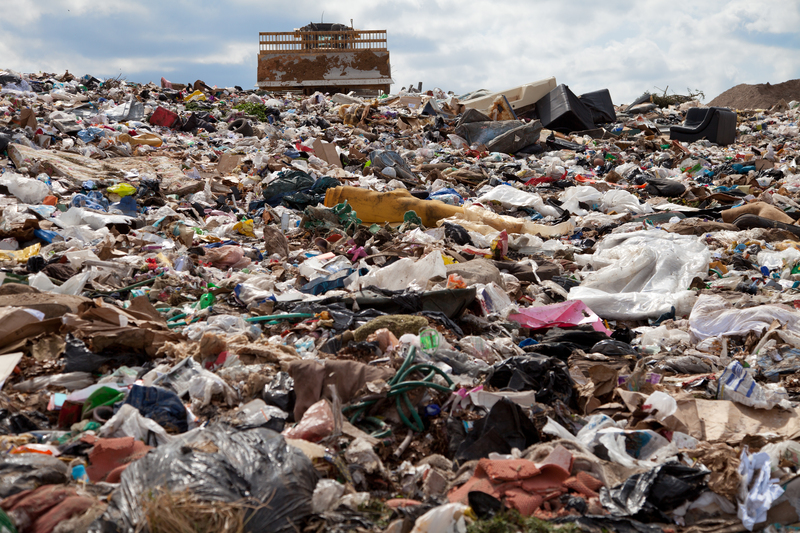Bulky Waste Items Disposal: Save More, Stress Less
Disposing of bulky waste items can be a daunting task for homeowners, renters, and businesses alike. Whether it's old furniture, faulty appliances, or large amounts of garden debris, knowing how to efficiently and sustainably handle these large objects is essential for both your wallet and the planet. In this comprehensive guide, we'll explore everything you need to know about bulky rubbish removal, ways to save money, and strategies for a smoother, stress-free process.

What Is Bulky Waste?
Bulky waste refers to items that are too large to be collected by regular bin services or do not fit into standard waste containers. These materials often require a special collection service due to their size or weight.
Common Examples of Bulky Waste Items
- Furniture (e.g., sofas, mattresses, wardrobes, tables, chairs)
- Large appliances (e.g., refrigerators, washing machines, stoves)
- Garden waste (e.g., tree branches, shrubs, old sheds)
- Renovation debris (e.g., bathtubs, doors, flooring)
- Electronics (e.g., televisions, computers, monitors)
These items require special handling, not only because of their size, but also due to recycling regulations and environmental concerns.
Challenges of Bulky Rubbish Removal
Why is it so stressful to get rid of large waste? For most people, disposing of bulky waste items presents unique challenges:
- Lack of suitable vehicles: Most people don't own vehicles large enough to transport sofas, wardrobes, and other oversized items.
- Manual labor: These items are often heavy, making transportation and handling tough without help or professional equipment.
- Facility access: Not all local recycling centers accept every type of bulky item, requiring research and planning.
- Environmental impact: There are strict regulations for responsible disposal, especially for appliances or electronics, as they contain hazardous materials.
Why Proper Bulky Waste Disposal Matters
Proper disposal of bulky items is about more than keeping your home clutter-free. It protects the environment, saves you money, and ensures compliance with local laws. Here's why:
- Reduces landfill waste: Responsible disposal and recycling minimize the volume of items sent to landfill sites.
- Prevents pollution: Items like fridges and electronic goods contain hazardous materials that can pollute soil and water if not handled correctly.
- Frees up space: Efficient disposal declutters your home, garden, or business premises, enhancing your quality of life.
- Can save or even make money: Some items, if recycled properly or donated, may have value or reduce disposal fees.
- Helps others: Donating usable items aids local charities and people in need.
Smart Solutions for Stress-Free Bulk Item Disposal
1. Local Council Bulky Waste Collection
Most local councils offer scheduled bulky waste collection services. These services typically operate on a pre-booking basis, and can collect items directly from your curb. Some councils offer free collections--others charge a nominal fee, but in either case, this method is both convenient and cost-effective.
- Check your local authority's website for guidelines, allowable items, and booking instructions.
- Group multiple items together for collection, saving on transportation and reducing your carbon footprint.
- Most councils will not collect hazardous waste, tires, or construction materials--double-check the specifics.
2. Donate Unwanted Items
Before you throw away that old sofa, consider whether it's still in usable condition. Many charities will accept furniture and large appliances that are still functional.
- Organizations such as The Salvation Army, Goodwill, and Furniture Bank offer free pickups.
- Some charities refurbish and sell or distribute items to people in need, so you'll be helping others and the environment.
- If you have items of considerable value, you can also list them on community websites like Craigslist or Facebook Marketplace--sometimes, people will collect them free of charge.
3. Use a Bulky Item Collection Company
Professional bulky item disposal services are efficient, particularly if you have multiple or very heavy items. These companies handle all the logistics, from loading to proper disposal or recycling.
- Compare quotes from a few companies for the best rates.
- Look for firms with environmental accreditation or that prioritize recycling.
- Some offer same-day or next-day service, making them ideal for urgent requirements.
- Ask about their disposal policies to ensure your items won't simply end up in landfills.
4. Visit a Recycling Center
Local recycling centers often accept bulky items, especially if they're made of metal, wood, plastic, or electronics. This DIY option usually requires access to a van or truck and some manual effort.
- Most centers are free for residents but may charge for commercial or large volumes.
- Check which materials your local site accepts before you visit to avoid wasted trips.
5. Arrange a Skip Bin
Hiring a skip bin is ideal if you're renovating, landscaping, or doing major clear outs. You fill the skip at your convenience, and the company collects it when full.
- Choose a skip size appropriate for your needs (they range from small 2-yard bins to giant 20-yard monsters).
- Confirm with the supplier what can--and can't--go in the skip (hazardous waste rules apply).
6. Sell or Give Away for Free
If your bulky waste items have life left in them, why not sell, swap, or give away online? There are numerous platforms built for this purpose:
- eBay
- Facebook Marketplace
- Craigslist
- Freecycle
Giving away bulky items for free often guarantees a quicker pick-up, further reducing landfill waste.
How to Save Money on Bulk Waste Disposal
Disposing of bulky items doesn't have to break the bank. Here's how you can save more:
- Bulk bookings: Schedule collection of multiple items at once rather than one at a time. Fees per item are often lower for larger loads.
- Use free recycling days: Some municipalities offer free or discounted disposal days for residents. Mark your calendar for these events.
- Shop around for collection services: Get multiple quotes and pick a company with transparent rates.
- DIY drop-off: If you have a friend with a truck, transporting items yourself can be significantly cheaper than hiring a professional service.
- Join local social media groups: Many communities have pages where residents post bulk-waste pickup or share disposal costs for group deals.
- Upcycle or repair: Refurbish old furniture or appliances rather than buying new--saving both money and landfill space.
Environmental Impact and Compliance
Modern regulations around bulky trash disposal emphasize recycling and environmental protection. Here's why compliance is non-negotiable:
- Legal requirements: Many cities fine residents and businesses for improper dumping.
- Environment protection laws: Items containing chemicals or refrigerants (like fridges and freezers) can pollute the earth and water supply if not disposed of correctly.
- Sustainable future: Responsible disposal ensures resources are reclaimed and repurposed, conserving raw materials and reducing emissions.
Always check government or local council websites for the latest information on legal and eco-friendly disposal of large items.
Tips for a Smooth Bulky Waste Disposal Process
- Plan ahead: Don't wait until the last minute to arrange disposal, especially during peak moving seasons when collection services are busy.
- Disassemble when possible: Break down large items (like beds or wardrobes) to make handling and transport easier.
- Separate recyclables: Keep metal, wood, electronics, and other recyclable materials apart to speed up processing at recycling centers.
- Label hazardous items: If you must dispose of items with batteries, chemicals, or refrigerants, mark them clearly for special handling.
- Document everything: Keep receipts and records of bulky item removals for future reference--this can be crucial for landlords and businesses following waste compliance standards.
- Ask for help: For heavy or awkward items, recruit friends, family, or professionals to avoid injury.

Innovative Trends in Bulk Waste Management
As more communities become eco-conscious, solutions for bulky item disposal are evolving:
- Mobile apps that let you request collection, track your pickup, and pay online.
- Smart recycling centers using AI to automatically sort and process recyclable components.
- Furniture and appliance banks that specialize in refurbishing and redistributing unwanted items.
- Community swaps and sharing platforms that extend the life of large household and office items.
Conclusion: Bulky Waste Disposal for a Cleaner Tomorrow
Taking proactive steps to dispose of bulky waste items saves you time, money, and a great deal of hassle. But more importantly, it preserves our environment for future generations. Whether you use your council's collection scheme, hire a professional bulk item pickup service, or donate to charity, every responsible decision makes a difference.
With proper planning and the right information, you can save more, stress less, and contribute to a cleaner, clutter-free world.
From bulky waste collection tips to money-saving hacks--arm yourself with the knowledge above and simplify your next big clean-out.
